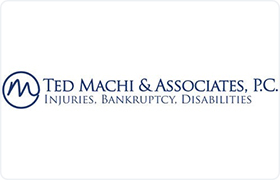Joshua Bankruptcy Lawyer, Texas
Sponsored Law Firm
-
 x
x

Click For More Info:
-
Machi & Associates, P.C.
1521 North Cooper Street Suite 550 Arlington, TX 76011» view mapAccident & Injury, Bankruptcy, Social Secuirty We Fight So You Don't Have To
Our professional team of attorneys and staff provide the experience and expertise needed to effectively handle your case.
800-804-0771
Includes: Bankruptcy Litigation, Commercial Bankruptcy, Consumer Bankruptcy, Dissolution
David A. Coggin
Litigation, Family Law, Business & Trade, Bankruptcy
Status: In Good Standing Licensed: 50 Years
Martin Allan Rechnitzer
Clean Air Practice, Elder Law, Business & Trade, Bankruptcy
Status: In Good Standing Licensed: 45 Years
Kristina Bline Dial
Commercial Real Estate, Family Law, Business & Trade, Bankruptcy
Status: In Good Standing Licensed: 38 Years
Chohn T. Hickman
Construction, Litigation, Credit & Debt, Consumer Bankruptcy
Status: In Good Standing Licensed: 27 Years
Burt Edward Powell
Estate Planning, Bankruptcy, Elder Law, Commercial Real Estate, Estate
Status: In Good Standing Licensed: 40 Years
Michael S. Tomasic
Commercial Real Estate, Litigation, Business & Trade, Consumer Bankruptcy
Status: In Good Standing Licensed: 51 Years
Tiffany Jean Huffman Van Slyke
Family Law, Business & Trade, Consumer Bankruptcy, Personal Injury
Status: In Good Standing Licensed: 18 Years
 Ted Machi Arlington, TX
Ted Machi Arlington, TX Practice AreasExpertise
Practice AreasExpertise
